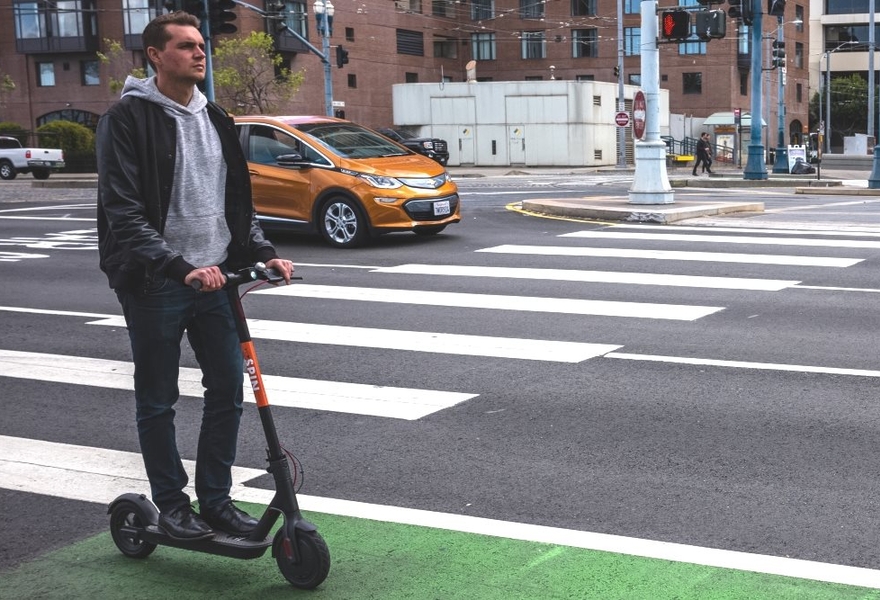Digitalization can help to push forward green urban transportation
But it also harbours risks, which is why politics must actively shape this, a team of experts from the MCC and other research institutes explains in a scientific article.
The spread of smartphone apps for car or bike sharing could ultimately reduce the number of cars in large conurbations by more than 90 percent. This scientifically sound perspective is an example of how the megatrend of digitization can make urban transport more sustainable and climate-friendly. But digitalization also entails risks, and must therefore be actively shaped by politicians, writes a team of experts from the Berlin climate research institute MCC (Mercator Research Institute on Global Commons and Climate Change) and other institutes in an article published in the journal Global Sustainability.
"Digitalization is currently driving three different upheavals in urban transport, towards sharing solutions, towards e-mobility, and towards automated driving," explains Felix Creutzig, an author of the article and head of the MCC working group Land Use, Infrastructure and Transport: "In an unfavorable scenario, this could seriously damage the infrastructure of buses and trains, promote urban sprawl and greatly increase traffic volume with its harmful consequences.” This is why politics is called upon to deal with it in the coming years, especially at the municipal level. "It must sensibly regulate the dynamics of big data, artificial intelligence and automatization, and turn them into a lever for greater sustainability.
What this means for the various facets of sustainability - from urban mobility and quality of life to health and data protection - is systematically examined in the article. And the researchers outlines how city mayors should reorganize themselves: for example with a central digitization unit across all subject areas, as already done in cities like Tel Aviv in Israel, and with a comprehensive database on urban mobility. In addition, carbon pricing and parking space management could ensure that car sharing makes motorised transport more efficient, and helps to make healthy cycling and public transport more attractive. "There is no reason to demonize or deify big data and artificial intelligence," says Creutzig. "But it's time to actively manage it politically.
Reference of the cited article:
Creutzig, F., Franzen, M., Moeckel, R., Heinrichs, D., Nagel, K., Nieland, S., Weisz, H., 2019, Leveraging Digitalization for Sustainability in Urban Transport, Global Sustainability
https://www.cambridge.org/core/journals/global-sustainability/article/leveraging-digitalization-for-sustainability-in-urban-transport/9322C52E379793B7C4A41682EC99DB6A






